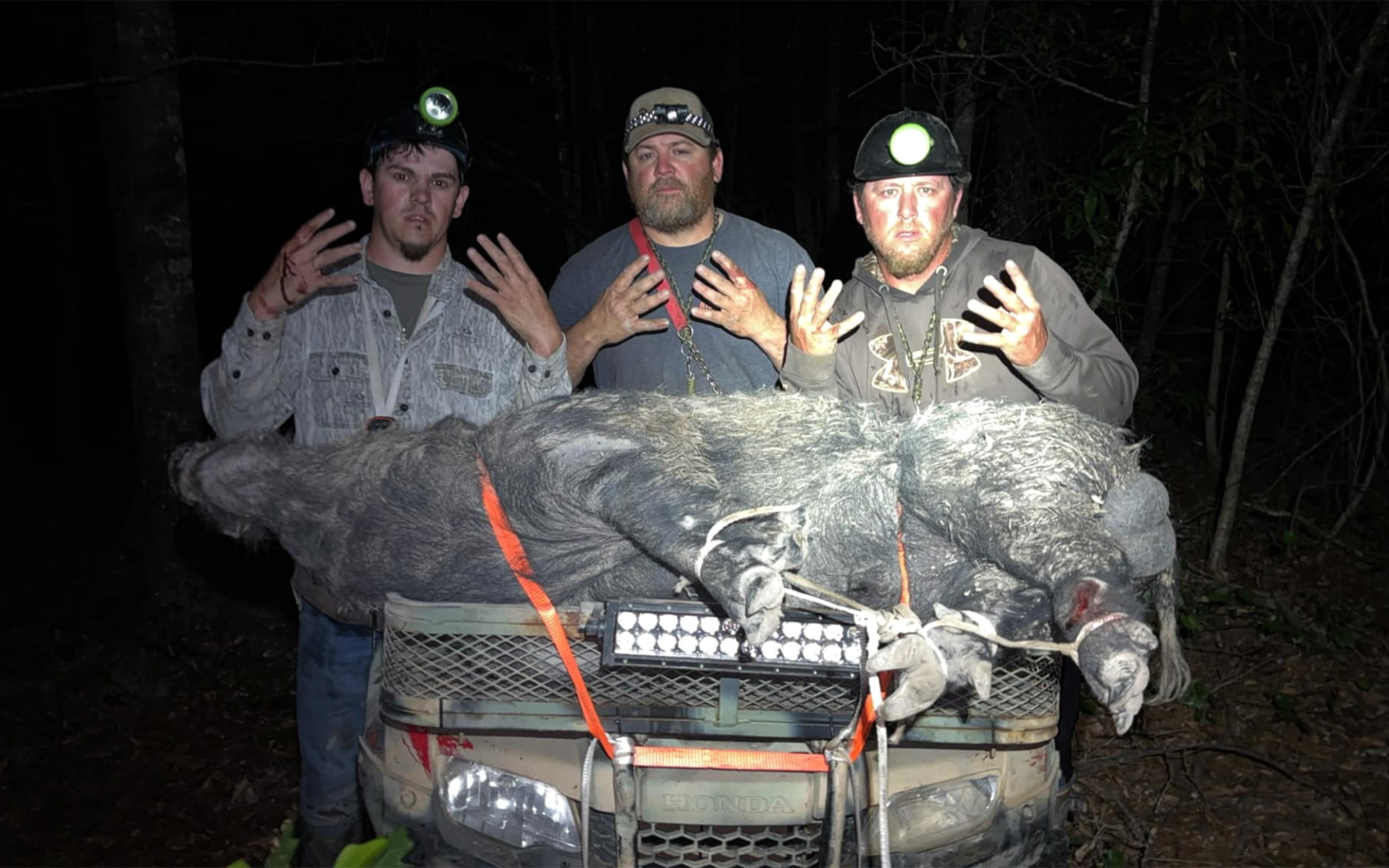While Brood XIX cicadas are starting to slow down in the South, Brood XIII is nearing peak emergence in the Midwest. The Chicago area is seeing massive groups of bugs emerge, and local news stations and residents have been sharing videos online. This week, Illinois anglers started consistently catching fish on cicada flies and lures, especially smallmouth bass and carp.
As has been the case in the South, the Midwest is experiencing great carp fishing. But the upper region of this historic cicada hatch is also seeing river bronzebacks crush these giant bugs on top. We spoke with Jeremy Spaccapaniccia, owner of DuPage Fly Fishing Co. in Naperville, Illinois, about bug numbers and fish activity. He and his guides are in the thick of the cicada action, and he shared some tips that have been helping him land fish this week.

Field Report: Northeast Illinois
As ground temperatures finally begin to warm in the North, Brood XIII (a.k.a. the Northern Illinois Brood) is emerging all across the Midwest. Jeremy Spaccapaniccia, owner of DuPage Fly Fishing Co., says that the bugs are peaking right now and that “the smallmouth are going nuts.” Spaccapaniccia and his team started seeing bugs about two weeks ago, but it took some time for the bass and carp to start feeding on them. “This week, bass are lining up and down the middle of the river, picking off cicadas as they go by.” Spaccapaniccia describes it almost as a trout river, with smallmouth bass heads rising to take cicada after cicada.
As a mostly warm water fly shop, Spaccapaniccia and his team mainly focus their fishing efforts on smallmouth bass and carp. Similar to the South, the carp fishing has been excellent as bugs continue to hit the water. “Our diehard carp guys are having a ball right now, and they’re actively looking for lips coming out of the water to eat cicadas,” he says. It is very much a sight fishing game when it comes to chasing carp, and these fish are cruising near the surface looking for fallen bugs.
Spaccapaniccia anticipates another two weeks of hard-eating fish. Once bugs stop falling into the water, he believes anglers will still be able to fool bass with cicada patterns for about another week or so. But for right now, the action is hot. “I was fishing on Monday, and the smallmouth were lined up in the middle of the river with heads coming up everywhere,” he says. “It took a couple of weeks for them to start looking for the bugs, but right now, the fish are eating nothing but cicadas.”
As the fly shop name implies, Spaccapaniccia and his team fish the west and east branches of the DuPage River, as well as the main stem. During the first week of June, the shop started seeing bugs on the east branch, but in the last week, the bugs have started to emerge more west, and now all three bodies of water are filled with cicadas. According to Spaccapaniccia, peak emergence is happening right now. “If you’re driving down the street, you’re smashing them anytime you go under trees,” he says. “It’s so noisy that you don’t want to be outside.”

Cicada Tips for Smallmouth Bass
Any overhanging brush is a great place to target bass and carp waiting for bugs to fall into the water. However, river smallmouth are a little different since the water acts as a conveyor belt, bringing the bugs right to the fish. “Bass are all over the place right now,” says Spaccapaniccia. “We saw them lined up eating in the middle of the river, like trout eating flies—this is what we call a feed line.” If you aren’t lucky enough to come across a “feed line,” target banks, areas with overhanging brush, and any submerged or natural structure where smallies might wait for bugs to float by. Throw a cicada fly or topwater lure upstream and let it drift through.
As far as bugs go, realistic cicada patterns, like the Project Cicada, will work best. “You want to splat the flies down on the water and just give them a little wiggle, Spaccapaniccia says. “The fly should slightly disturb the surface of the water, you don’t want any popping action.” He also says that you don’t have to be on the water super early. It takes the bugs a little bit to start singing and moving. Anglers should start fishing around mid-morning or once the bugs are in the air and start falling into the water. Prime time for the DuPage shop has been around noon to dusk.
Regardless, the best time to fish is whenever you can get on the water. But don’t wait too long, Brood XIII cicadas will only be emerging for a couple more weeks. Get in on the fun now and go catch a giant bronzeback.
Read the full article here




